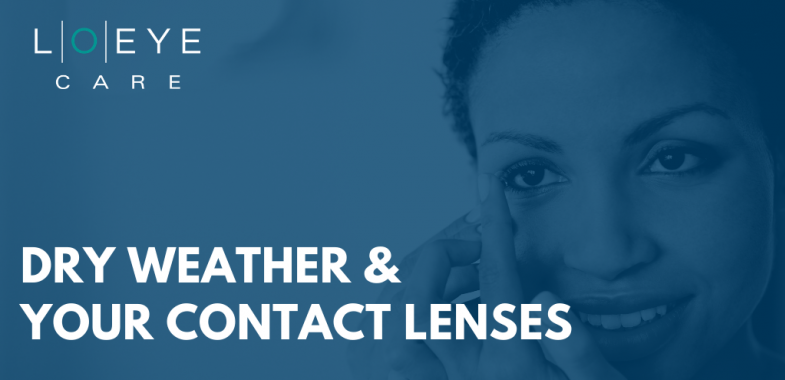
Cold and wintery weather and how it can affect contact lenses
In the fall and winter, when humidity levels decrease, your tears are more likely to evaporate leading to drier eyes. It’s important to wear sunglasses or goggles when you’re outdoors to block eye-drying winds and stock up on contact lens-compatible eye drops or artificial tears. Drinking plenty of water to keep your body, including your eyes, properly hydrated creates more dryness-fighting tears.
Raising the heat in homes, offices, and vehicles to combat colder temperatures can dry out your eyes and lead to irritation. To help ensure your eyes stay moist, avoid close contact with things like furnace vents, car vents, a fireplace, or a stove and turn on a humidifier.
In the worst-case scenario, if frigid weather is contributing to ongoing eye problems, substitute your contact lenses for glasses until you can see your eye care professional.
To promote eye health whether it’s sunny, cloudy, rainy or snowy, properly clean and store your contact lenses by following the manufacturer’s recommended schedule for changing your contacts (daily, monthly, etc.). One of the best ways to guard against eye issues regardless of the weather is to inquire about a prescription for daily disposable contact lenses (if you’re not already using them). A fresh, clean pair of daily contacts can reduce the likelihood of eye irritation or infection.
To minimize weather-related problems, take a break from contacts, a few hours before bedtime, for example, and wear your glasses instead. Also, be sure to get enough sleep; this can ease eye dryness and fatigue. Most importantly, do not wear your contacts while you’re sleeping, since this can increase the risk of developing an eye infection.
https://www.allaboutvision.com/contact-lenses/hot-cold-weather/